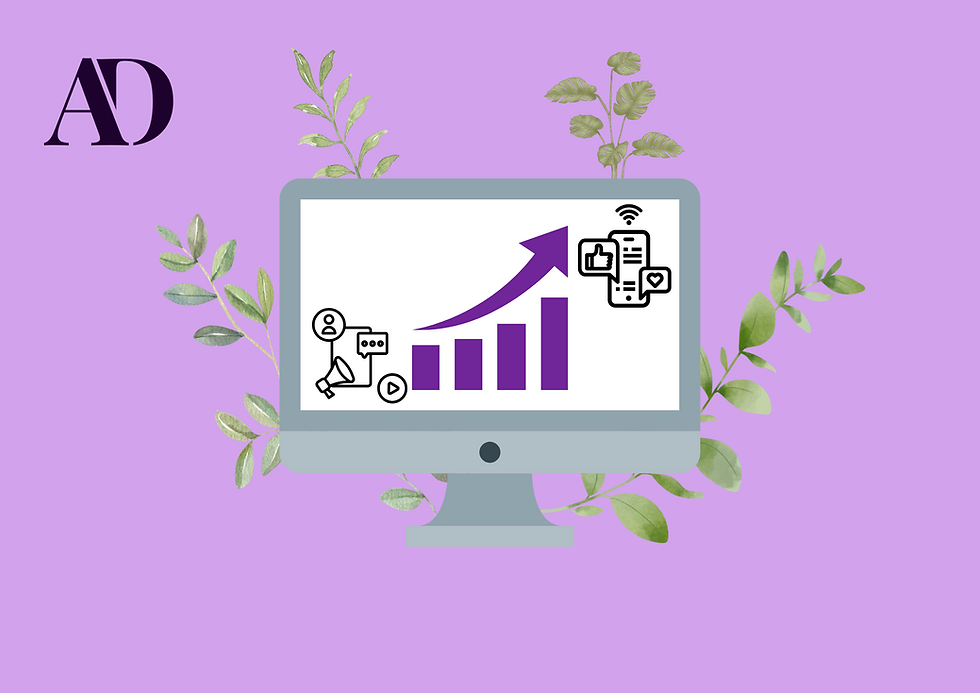Organic Digital Marketing: why it still matters & how to do it right
- Aditi Digital
- Sep 30
- 3 min read

“Organic digital marketing” refers to efforts that attract traffic, leads, or engagement without paid advertising: SEO, organic social media, content marketing, email (non-promoted), and so on. While platforms increasingly push paid reach, organic remains a crucial foundation especially for trust, long-term growth and sustainable ROI.
Why organic still matters
Cost efficiency & sustainability: Unlike paid campaigns, organic efforts compound over time (e.g. evergreen blog posts).
Credibility & trust: Users tend to trust content they found “naturally” more than aggressive ads.
57% of UK businesses are satisfied with their organic social media performance, a sign that many are seeing returns from unpaid reach. Source: localiq.co.uk
52% are satisfied with their SEO efforts. Source: localiq.co.uk
Organic should not be your only strategy, but it must remain part of your base.
Challenges of Organic vs Paid
Challenge | Paid Advertising | Organic Marketing |
Immediate visibility | You get reach instantly | Growth is gradual |
Control & targeting | Precision targeting, scalable budget | Less control, reliant on algorithm and relevance |
Saturation & competition | You can “buy your way in” | Content competes against many others; algorithms limit reach |
Cost scaling | Cost increases with competition | More investment is in time, creativity, consistency |
Longevity | Ends when budget ends | Good content can continue producing traffic over months/years |
Because organic reach is harder to achieve now, the best strategy is often a blend: a foundation of organic plus select paid boosts or ads.
Key organic tactics and best practices
SEO & Content marketing
Produce high-quality, user-intent content (blogs, guides, FAQs).
Optimise pages for keywords, internal linking, site speed, mobile usability.
Update and republish older content to keep it fresh.
Leverage long-tail keywords and local SEO for shops.
Organic Social Media
Post valuable, shareable, relatable content (tips, behind the scenes, stories).
Use formats that naturally reach (video, reels, carousels).
Encourage engagement (questions, polls, conversation).
Use hashtags and cross-posting smartly, but don’t rely solely on them.
Email and Newsletter
Build your email list from website visitors, blog readers, customers.
Send useful content (not just promotions) to keep subscribers engaged.
Segment your audience so messages feel relevant.
Community, user-Generated content and partnerships
Encourage customers to share experiences, reviews, photos.
Collaborate with micro-influencers or complementary local businesses.
Use forums, social groups, local directories for organic visibility.
Repurpose and multiply reach
Turn a blog into social posts, infographics, short videos.
Create bite-sized content from longer formats (webinars, podcasts).
Interlink your content (blog, newsletter, social) to funnel people between channels.
Metrics and signals of organic success
Some important metrics to track for organic performance:
Organic traffic (sessions from non-paid search)
Keyword rankings (for target and long-tail keywords)
Engagement rates on organic social (likes, comments, shares)
Email open and click-through rates (from organic campaigns)
Bounce rate and session duration from organic sources
Backlinks/domain authority growth (for SEO)
As benchmarks are fluid, compare to past performance, competitor metrics, and industry norms (e.g. SEO satisfaction rates in UK, organic social performance)
How Small UK Businesses Should Prioritise
Start with your website/blog + SEO - low ongoing cost but high upside.
Produce a content calendar so you publish consistently across owned channels.
Use social media organically, but understand reach may be limited, focus on quality and engagement rather than volume.
Grow an email list early and use it for retention and repeat engagement.
When you have some traction, test small paid boosts (supported by your organic content) to extend reach.
Regularly audit what’s performing and double down; kill what doesn’t work.
Conclusion
Organic digital marketing may be tougher than it once was, but it remains a bedrock for sustainable growth. The key is strategic content, consistency, and smart use of tools to amplify reach. Combine it with paid tactics to maximise results.
At Aditi Digital Marketing, we help small UK shops and businesses build effective organic growth strategies that feed into paid efforts, ensuring you get visibility today and longevity tomorrow.




Comments